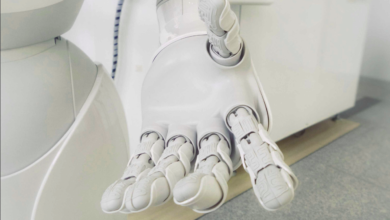Investors Back $235 Million Push to Bring AI Into Scientific Research
Lila Sciences has developed AI models trained on vast academic literature spanning materials science, chemistry, and life sciences.

Massachusetts, September 14, 2025:Artificial intelligence is taking another major step into the world of science. Lila Sciences, a fast-rising biotechnology startup, has raised $235 million in fresh funding, pushing its valuation to around $1.23 billion.
The investment, led by Braidwell and Collective Global, comes just months after Lila emerged from stealth mode with a massive $200 million seed round. Backed by investors including Cathie Wood’s ARK Venture Fund and General Catalyst, the company is now positioned as one of the most well-funded AI players in biotech.
Building AI-Powered “Science Factories”
Lila Sciences has developed AI models trained on vast academic literature spanning materials science, chemistry, and life sciences. Unlike traditional AI startups, Lila is pairing these models with automated labs—or “AI science factories”—where human researchers and AI systems work together to generate, test, and refine hypotheses.
The new funding will allow the company to expand the size and number of these facilities, accelerating breakthroughs in fields as diverse as carbon-capturing materials, new proteins, and drug discovery.
“If your training input is entirely publicly available data, then one hits a ceiling,” said Geoffrey von Maltzahn, Lila’s co-founder and CEO. “Our feedback loop allows Lila to discover things that would be slower to impossible under previous paradigms.”
From Years to Weeks: Rethinking Discovery
Traditional scientific research can take years of trial-and-error experiments. Lila argues its AI-driven approach can cut that timeline down to weeks or even days, making it possible to test thousands of novel materials and compounds at record speed.
Since its founding in 2023, the company claims to have already discovered thousands of new proteins, nucleic acids, chemistries, and materials, all tested in-house. While none have been commercialized yet, von Maltzahn confirmed that outside companies are eager to access Lila’s AI-powered labs, with partnerships expected later this year.
Competing in the AI Science Race
The rise of Lila reflects a growing global race to bring AI into the lab. Other startups such as Orbital Materials and Isomorphic Labs are also pushing boundaries in AI-driven discovery. But investors believe Lila’s hybrid approach of combining automated research facilities with proprietary AI gives it a unique edge.
“Think of Lila as an IP factory par excellence,” said Daniel Adamson, co-founder and co-CEO of Collective Global. “The ability to rapidly generate patents across materials and drug development is a game-changer.”
Toward “Scientific Superintelligence”
In a bold move, Lila plans to pit its AI against teams of human researchers, testing whether machines can outperform scientists in discovery—a step von Maltzahn compared to IBM’s Deep Blue defeating Garry Kasparov in chess.
If successful, Lila could establish itself not just as a biotech startup but as the company leading the way toward scientific superintelligence.











